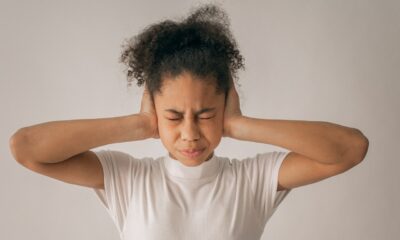Features
Jean Clare Oge: Mental Health and Mindfulness for Persons with Disabilities
We must understand that persons with disability are additionally burdened by mental illness.

Owing to the increasing awareness and talks about mental health in the past couple of years, there has been some level of positive behavioural changes towards persons affected by mental illness. Thankfully, people are becoming more tolerable and better able to provide some level of support to persons affected with mental health issues. While this is the case for the general population, a key group often neglected are persons affected by disabilities.
There is a general lack of awareness and tolerance towards persons with disabilities, several factors contribute to this, such as the associated stigma and discrimination they continually face daily. While carrying out a mental health awareness project funded by the Leprosy Mission of Nigeria (TLMN) and targeted towards communities of persons affected by non-tropical diseases (NTDs) in Nigeria, it became glaring that there seems to be something like a catch-22 going on when it comes to the community of persons with disabilities: a significant percentage of them are affected by mental health problems but are not able to access treatment and support services for fear of stigma and discrimination. On the other hand, the associated stigma and discrimination that they face take a toll on their mental health.
The overlapping issue is that NTDs are directly and indirectly linked to mental health conditions, particularly depression. NTDs, such as leishmaniasis, leprosy, and lymphatic filariasis, cause facial and bodily changes, or ‘disfigurements’, that lead to pain and distress. Exclusion due to physical and sensory impairments may worsen the mental health of people affected. Perhaps most importantly, ‘stigma’ causes both exclusion and poor mental health outcomes.
Aside from facing entrenched stigma and discrimination, persons with disabilities often face physical and sexual abuse and are often excluded from social, economic, and political activities. What you then have is a community of persons with disability affected by the invisible disability which have the potential to cause further emotional, social, and physical impairments.
We need to be clear, however, that not all persons with disability are going to have depression or other forms of mental illness. Though, some of the challenges they face put them at higher risk. We are all aware that socioeconomic status, health, pain, mobility, experiencing trauma, and isolation are common challenges for persons with disability and it is these very challenges that elevate the risk of mental health concerns. It is also important to note that mental health conditions are not only limited to persons with severe mental disorders confined to psychiatric hospitals, or persons without physical disability. Mental illness is a widespread but often “invisible” phenomenon.
We must understand that persons with disability are additionally burdened by mental illness. Adults with disabilities report experiencing frequent mental distress almost five times as often as adults without disabilities. This ought to be indicative of the fact that they should be prioritized in support strategies.
Even so, the reality remains that persons with disabilities face a variety of structural and ideological challenges that have little to do with their actual limitations. They are often reduced to their disability, rather than being treated as valuable and contributing members of society. Known as ableism, these damaging stigmas devalue them by dismissing them as being “less than” people without disabilities.
It is time to open our eyes to make this ‘invisible disability’ visible. We need to consciously be more kind and tolerable to persons with disabilities, assisting these affected and vulnerable groups to bounce back from the shock and disruption of mental ill health. Equally important is offering them the opportunities to reintegrate, participate and contribute to community life.
Action is also needed to inform, train and empower actors outside the traditional mental health sphere, to facilitate the reintegration of persons with disabilities, given the frequent unawareness and non-disclosure of mental disorders.
***
Featured image: Pexels




















